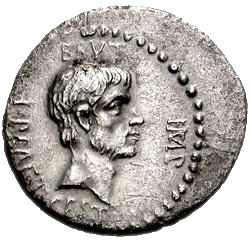A Quote by Carl Jung
All the works of man have their origin in creative fantasy. What right have we then to depreciate imagination.
Quote Topics
Related Quotes
Fantasy is a product of thought, Imagination of sensibility. If the thinking, discursive mind turns to speculation, the result isFantasy; if, however, the sensitive, intuitive mind turns to speculation, the result is Imagination. Fantasy may be visionary, but it is cold and logical. Imagination is sensuous and instinctive. Both have form, but the form of Fantasy is analogous to Exposition, that of Imagination to Narrative.
The dynamic principle of fantasy is play, a characteristic also of the child, and as such it appears inconsistent with the principle of serious work. But without this playing with fantasy no creative work has ever yet come to birth. The debt we owe to the play of imagination is incalculable. It is therefore short-sighted to treat fantasy, on account of its risky or unacceptable nature, as a thing of little worth.
Man's origin was as spirit, not a physical body. These souls projected themselves into matter, probably for their own diversion. Through the use of his creative powers for selfish purposes, man became entangled in matter and materiality to such an extent that he nearly forgot his divine origin and nature.
Fantasy works inwards upon its author, blurring the boundary between the visioned and the actual, and associating itself ever moreclosely with the Ego, so that the child who has fantasied himself a murderer ends by becoming a Loeb or a Leopold. The creative Imagination works outwards, steadily increasing the gap between the visioned and the actual, till this becomes the great gulf fixed between art and nature. Few writers of crime-stories become murderers--if any do, it is not the result of identifying themselves with their murderous heroes.
Imagination, where it is truly creative, is a faculty, and not a quality; it looks before and after, it gives the form that makes all the parts work together harmoniously toward a given end, its seat is in the higher reason, and it is efficient only as a servant of the will. Imagination, as it is too often misunderstood, is mere fantasy, the image-making power, common to all who have the gift of dreams.
Imagination helps you to recognize the reality of facts, but then to go beyond them, to penetrate beneath them, to rise above them in your search for creative answers to problems. Imagination "stirs up the gift of God in thee." Through your imagination you touch and express the inspiration of the Infinite. Imagination, in the words of Shakespeare, "gives to airy nothing a local habitation and a name." You reach into the heavens to grasp an idea, then you bring it down to earth and make it work.


































